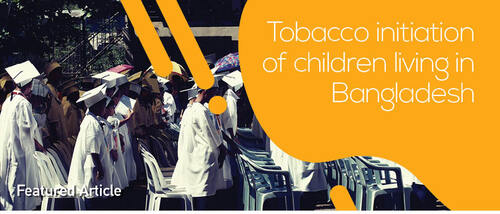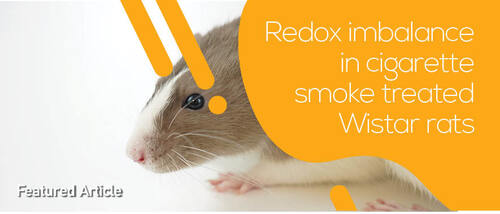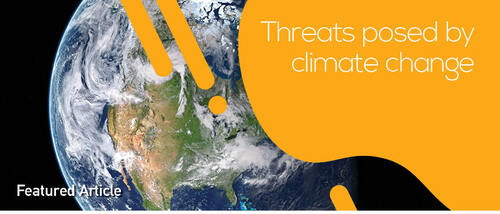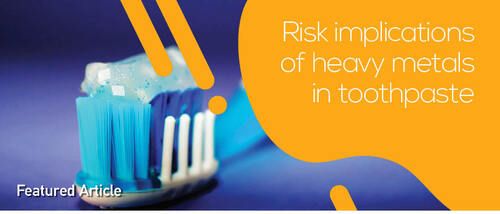Principles of Transparency Checklist
Below we provide a "Principles of Transparency Checklist" for our journal.
1. The Name of journal
The Journal name, Public Health and Toxicology is unique and can not be confused with any of the other journals in the field.
2. Website
Our journal's web site has been developed with care so as to ensure high ethical and professional standards. Constant updating is performed to enhance website utility, ease navigation and maintain the information available as the most recent. The journal's website has the e-ISSN: 2732-8929.
3. Publishing schedule
The publishing schedule for our journal is quarterly (4 issues per year).
4. Archiving
To ensure digital preservation for the future, our electronic publications are archived with Portico. Portico is a third-party preservation service supported by both libraries and publishers to ensure that scholarly content published in electronic form will remain accessible for the long term.
5. Copyright
Copyright is clearly described on the journal's web site, and licensing terms are indicated on all published PDFs and HTMLs.
Authors submitting their work to Public Health and Toxicology retain the copyright of their work without restrictions.
6. Licensing
The default license for articles published in Public Health and Toxicology is the Creative Commons Attribution-NonCommercial 4.0 International License (CC-BY-NC 4.0). Each article abstract and summary, as available on the website (PDFs and HTMLs), has a dedicated “license” tab with a direct link to the licensing requirements of that article.
7. Publication ethics and related editorial policies
We have clear policies on handling potential conflicts of interest of editors, authors, and reviewers - all are requested to either complete ICMJE forms or declare no conflict of interest. The Authorship & COI tab provides further information.
The journal has policies on publication ethics that can be found via the following link.
8. Peer review process
All journal content is clearly marked as whether peer reviewed or not. Final article PDFs contain a description of the peer review process (internal or external) and provenance (commissioned or non commissioned) for that article. Peer review is double blind within our journal. Every original article is peer reviewed by a minimum of two external experts and one member of the editorial board. In all cases the manuscript is also reviewed by at one Editor-in-Chief. Letters to the Editor and Editorials are peer reviewed internally. All journal content is clearly marked as whether peer reviewed or not (internally vs. externally peer reviewed). All articles have a specific provenance and peer review tab (commissioned vs. non commissioned).
Authors may suggest external reviewers that are qualified to peer review the manuscript, provided that they have not collaborated closely in the near past and that they are not from the same institution. Authors may also note peer reviewers who they would not prefer to review this paper. While the authors suggestions are taken into account, the Editorial Office reserves the right to handle double blind peer review at its discretion. Any manuscripts received for review will be treated as confidential documents.
External peer reviewers are requested to report on the ethical aspects of the manuscript they are allocated to review and are requested to report also on the novelty, the impact, the statistical analysis, references and potential conflicts of interest. A specific peer review form is provided with closed and open based questions so as to rate the manuscript and provide comments.
Reviewers are also requested to consider the following, should they proceed with a review for the journal:
9. Access
Public Health and Toxicology is freely available to readers with no subscription or pay per view fees. The number of direct downloads for each article are noted next to the article's abstract.
10. Ownership and management
The journal is operated and managed by European Publishing. All content is published under the CC-BY-NC 4.0 international license, which means that the authors retain ownership of the content of their manuscript.
11. Advisory body
Our journal has an editorial board whose members are recognized leading experts in the area of toxicology and public health, at a regional and international level. The full names and affiliations of the journal's editors are provided from the Editorial Board page. The editorial board is the final governing body of the journal.
12. Editorial team/contact information
We provide the full names and affiliations of the journal's editors as well as full address and contact information for the editorial office and the publisher, under the Contact us tab.
13. Author fees
In Public Health and Toxicology there are no fees or any Article Processing Charges (APC) required from submission to publication (for manuscript processing and/or publishing material in the journal). There are no fees or any Article Processing Charges (APC) required for submission, editorial processing, page processing or withdrawing of an article.
14. Other revenue
There are no Article Processing Charges (APC) or any related subscriptions or costs. Journal development has been co financed through Greece and the European Union by the European Regional Development Fund (ELEVATE GREECE).
15. Advertising
The journal does not accept advertisements.
16. Direct marketing
We do not engage in direct solicitation of articles. To us, the best promotion of a journal is through the maintenance of high standards, quality manuscripts and vigorous double-blind peer review. In cases of very prominent researchers in the field, the journal does send one-to-one personal invitations for commissioned manuscripts or guest editorials. In this event, the manuscript/editorial will be noted as "commissioned" in the footnote of the PDF and in HTML format.
The Journal name, Public Health and Toxicology is unique and can not be confused with any of the other journals in the field.
2. Website
Our journal's web site has been developed with care so as to ensure high ethical and professional standards. Constant updating is performed to enhance website utility, ease navigation and maintain the information available as the most recent. The journal's website has the e-ISSN: 2732-8929.
3. Publishing schedule
The publishing schedule for our journal is quarterly (4 issues per year).
4. Archiving
To ensure digital preservation for the future, our electronic publications are archived with Portico. Portico is a third-party preservation service supported by both libraries and publishers to ensure that scholarly content published in electronic form will remain accessible for the long term.
5. Copyright
Copyright is clearly described on the journal's web site, and licensing terms are indicated on all published PDFs and HTMLs.
Authors submitting their work to Public Health and Toxicology retain the copyright of their work without restrictions.
6. Licensing
The default license for articles published in Public Health and Toxicology is the Creative Commons Attribution-NonCommercial 4.0 International License (CC-BY-NC 4.0). Each article abstract and summary, as available on the website (PDFs and HTMLs), has a dedicated “license” tab with a direct link to the licensing requirements of that article.
7. Publication ethics and related editorial policies
We have clear policies on handling potential conflicts of interest of editors, authors, and reviewers - all are requested to either complete ICMJE forms or declare no conflict of interest. The Authorship & COI tab provides further information.
The journal has policies on publication ethics that can be found via the following link.
8. Peer review process
All journal content is clearly marked as whether peer reviewed or not. Final article PDFs contain a description of the peer review process (internal or external) and provenance (commissioned or non commissioned) for that article. Peer review is double blind within our journal. Every original article is peer reviewed by a minimum of two external experts and one member of the editorial board. In all cases the manuscript is also reviewed by at one Editor-in-Chief. Letters to the Editor and Editorials are peer reviewed internally. All journal content is clearly marked as whether peer reviewed or not (internally vs. externally peer reviewed). All articles have a specific provenance and peer review tab (commissioned vs. non commissioned).
Authors may suggest external reviewers that are qualified to peer review the manuscript, provided that they have not collaborated closely in the near past and that they are not from the same institution. Authors may also note peer reviewers who they would not prefer to review this paper. While the authors suggestions are taken into account, the Editorial Office reserves the right to handle double blind peer review at its discretion. Any manuscripts received for review will be treated as confidential documents.
External peer reviewers are requested to report on the ethical aspects of the manuscript they are allocated to review and are requested to report also on the novelty, the impact, the statistical analysis, references and potential conflicts of interest. A specific peer review form is provided with closed and open based questions so as to rate the manuscript and provide comments.
Reviewers are also requested to consider the following, should they proceed with a review for the journal:
- According to COPE, reviewers are strictly suggested not to contact the authors directly without the permission of the journal.
- In case of active collaboration with the authors of a manuscript, reviewers are suggested to not proceed with a review as this raises concerns on potential conflict of interest and journal credibility may be at stake.
- Discrimination based on non-scientific criteria is clearly unacceptable (e.g. gender or nationality).
9. Access
Public Health and Toxicology is freely available to readers with no subscription or pay per view fees. The number of direct downloads for each article are noted next to the article's abstract.
10. Ownership and management
The journal is operated and managed by European Publishing. All content is published under the CC-BY-NC 4.0 international license, which means that the authors retain ownership of the content of their manuscript.
11. Advisory body
Our journal has an editorial board whose members are recognized leading experts in the area of toxicology and public health, at a regional and international level. The full names and affiliations of the journal's editors are provided from the Editorial Board page. The editorial board is the final governing body of the journal.
12. Editorial team/contact information
We provide the full names and affiliations of the journal's editors as well as full address and contact information for the editorial office and the publisher, under the Contact us tab.
13. Author fees
In Public Health and Toxicology there are no fees or any Article Processing Charges (APC) required from submission to publication (for manuscript processing and/or publishing material in the journal). There are no fees or any Article Processing Charges (APC) required for submission, editorial processing, page processing or withdrawing of an article.
14. Other revenue
There are no Article Processing Charges (APC) or any related subscriptions or costs. Journal development has been co financed through Greece and the European Union by the European Regional Development Fund (ELEVATE GREECE).
15. Advertising
The journal does not accept advertisements.
16. Direct marketing
We do not engage in direct solicitation of articles. To us, the best promotion of a journal is through the maintenance of high standards, quality manuscripts and vigorous double-blind peer review. In cases of very prominent researchers in the field, the journal does send one-to-one personal invitations for commissioned manuscripts or guest editorials. In this event, the manuscript/editorial will be noted as "commissioned" in the footnote of the PDF and in HTML format.
We process personal data collected when visiting the website. The function of obtaining information about users and their behavior is carried out by voluntarily entered information in forms and saving cookies in end devices. Data, including cookies, are used to provide services, improve the user experience and to analyze the traffic in accordance with the Privacy policy. Data are also collected and processed by Google Analytics tool (more).
You can change cookies settings in your browser. Restricted use of cookies in the browser configuration may affect some functionalities of the website.
You can change cookies settings in your browser. Restricted use of cookies in the browser configuration may affect some functionalities of the website.







